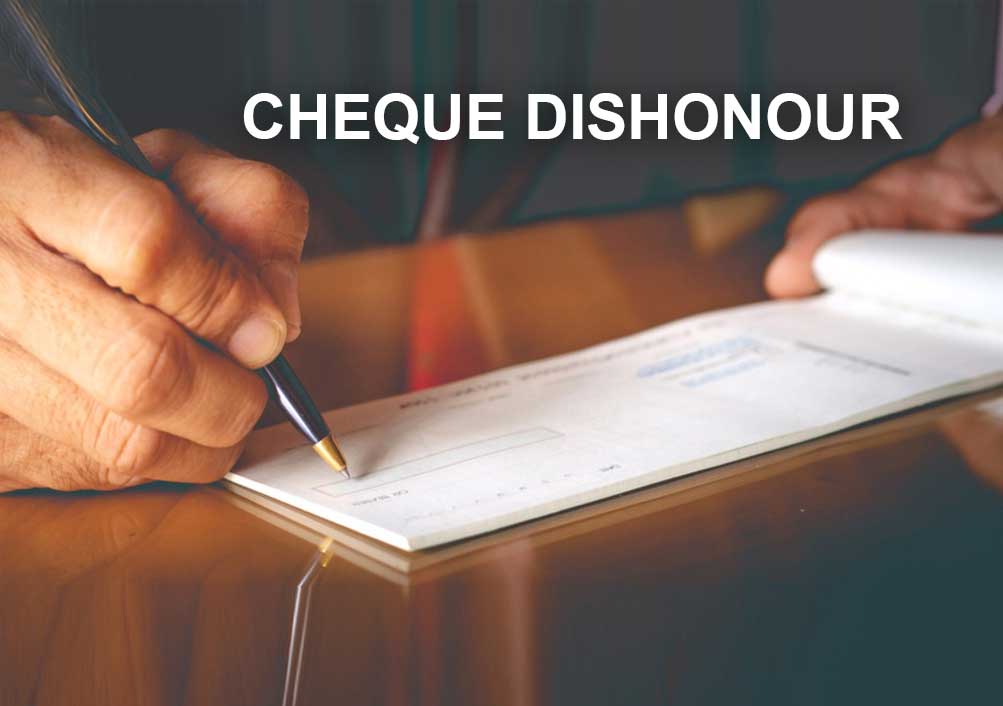In CRM-A-1997-MA-2015-PUNJ HC-Undisputed signatures of respondent on cheque in itself is not sufficient for conviction under Section 138 of NI Act, holds P&H HC Justice Avneesh Jhingan

Read Order: Parveen Mehta v. Vishal Joshi
Monika Rahar
Chandigarh, May 27, 2022: The Punjab and Haryana High Court has recently held that the undisputed signatures of the respondent on the cheque in itself is not sufficient for conviction under Section 138 of the Negotiable Instruments Act, 1881.
The Bench of Justice Avneesh Jhingan added, “One of the ingredients for succeeding under Section 138 of the Act is that the cheque was issued for discharge of debt or other liability.”
The Court was dealing with an application under Section 378(4) Cr.P.C. for grant of leave to appeal against the judgment acquitting respondent-Vishal Joshi in a Complaint Case in 2012.
The brief facts are that a cheque dated June 28, 2012, for Rs.85,000/- was presented by complainant-Parveen Mehta (appellant herein). The cheque was returned with the remark “insufficient funds”. A legal notice was thus served and the complaint under Section 138 of the Negotiable Instruments Act, 1881 (‘the Act’) was filed.
The respondent took a defence that the security cheque was misused. It was added that a loan of Rs. 5,000/- was taken from the complainant which was repaid but the cheque was not returned. By filling the amount of Rs. 85,000/-, the security cheque was presented in the bank. To substantiate the defence, the respondent relied upon the testimony of the official of the Income-tax Department and the income-tax returns filed by the complainant.
Further evidence was adduced to show that the complainant acted as a money lender. He had filed a number of complaints under Section 138 of the Act by misutilising the security cheques and if the amounts lent by him on loan were compared with his earnings in the income-tax returns, the amount advanced as loan were much higher.
The trial court concluded that the respondent was able to rebut the presumptions under Section 139 of the Act and the complainant failed to discharge the onus that the cheque was issued in discharge of the debt or other liability and acquitted the respondent.
The counsel for the applicant submitted that there was no dispute that the cheque was signed by the respondent. He further submitted that the financial capability of the complainant was not to be determined in the proceedings under Section 138 of the Act.
After considering these submissions, the Court observed that the contention raised by the counsel for the applicant did not aid his case for grant of leave to file an appeal. The Court added that the trial court did not determine the financial capability of the petitioner for lending the loan. The evidence adduced by the respondent was to substantiate the defence taken that the security cheque was misused and that the borrowed amount was Rs.5,000/- which was repaid.
Further, the Court noted that after successful rebuttal of the presumptions by the respondent, the complainant failed to discharge the onus cast upon him that the cheque was issued for discharge of the debt or other liability.
Additionally, Justice Jhingan added that the undisputed signatures of the respondent on the cheque in itself was not sufficient for conviction under Section 138 of the Act, rather one of the ingredients for succeeding under Section 138 of the Act is that the cheque was issued for discharge of a debt or other liability.
While applying the above legal position to the facts of the present case, the Court observed that the respondent was successful in rebutting the presumptions raised against him under Section 139 of the Act and the appellant failed to discharge the onus cast upon him.
Thus, it was concluded that the view taken by the trial court was a plausible view and no case was made out for grant of leave to appeal as no legal or factual error, much less perversity, was pointed out in the impugned order.
Sign up for our weekly newsletter to stay up to date on our product, events featured blog, special offer and all of the exciting things that take place here at Legitquest.




Add a Comment